
The Shambles is a historic street in York, England, featuring preserved medieval buildings, some dating back as far as the 14th century. The street is narrow, with many timber-framed buildings with jettied floors that overhang the street by several feet. It was once known as The Great Flesh Shambles, probably from the Anglo-Saxon Fleshammels, the word for the shelves that butchers used to display their meat. In 1885, thirty-one butchers' shops were located along the street, but none remain today.
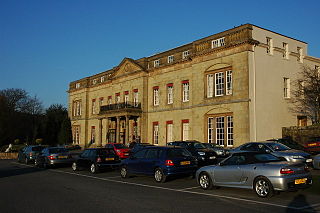
Shrigley Hall is a former country house standing to the northwest of the village of Pott Shrigley, Cheshire, England. It has since been used as a school, when a chapel was added, and later as a hotel and country club operated by The Hotel Collection.
Gayton Hall is a country house in Gayton Farm Road, Gayton, Merseyside, England. It was built in the 17th century and refaced in the following century. The house is constructed in brick with stone dressings, and has an Ionic doorcase. William of Orange stayed in the house in 1690. In the grounds is a dovecote dated 1663. Both the house and the dovecote are recorded in the National Heritage List for England as designated Grade II* listed buildings.

The Wealden Hall is a grade I listed building on Goodramgate in the city centre of York, in England.
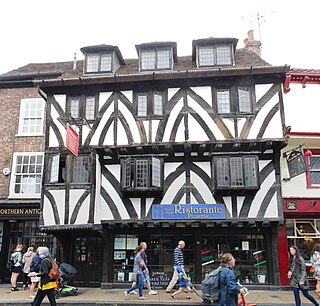
41–45 Goodramgate is a grade I listed building in the city centre of York, in England.
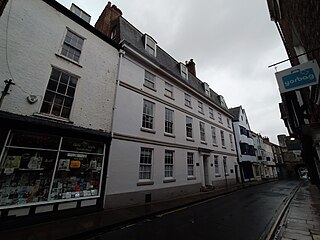
Petergate House is a grade II* listed building in the city centre of York, in England.
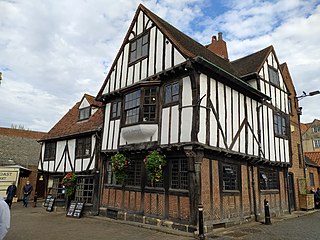
2 Jubbergate, also known as 4 Jubbergate, is a grade II* listed building in the city centre of York, in England.

7–8 The Shambles is a historic pair of buildings in York, England. Grade II* listed buildings dating to the early and late 15th century, they are located in The Shambles.

9 The Shambles is a historic building in York, England.

10–11 The Shambles is a historic pair of buildings in York, England. Grade II* listed buildings, they are located in The Shambles.

45 The Shambles is a historic building in York, England.

Doncaster Market lies in the centre of the city of Doncaster, in South Yorkshire, England.

The Eagle & Child is a pub on High Petergate, in the city centre of York, in England.
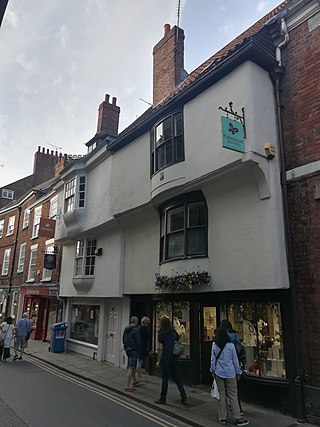
56–60 Low Petergate is a grade II* listed building in the city centre of York, in England.
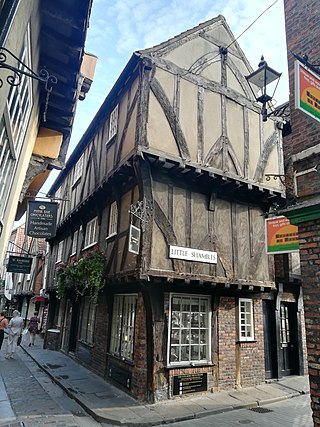
41 and 42 The Shambles is a historic building in York, England.
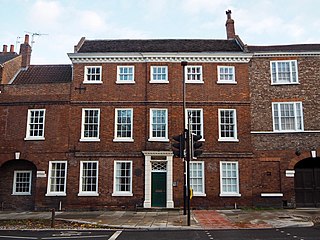
Middleton House is a grade II* listed building on Monkgate, immediately east of the city centre of York in England.

21 and 25 Stonegate is a historic building in the city centre of York, in England.

8 Fossgate is a historic building in the city centre of York, in England.
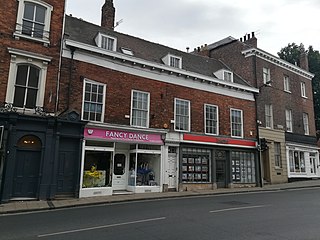
33–37 Micklegate is a historic building in the city centre of York, in England.

8 Stonegate is a historic building in the city centre of York, in England.




















